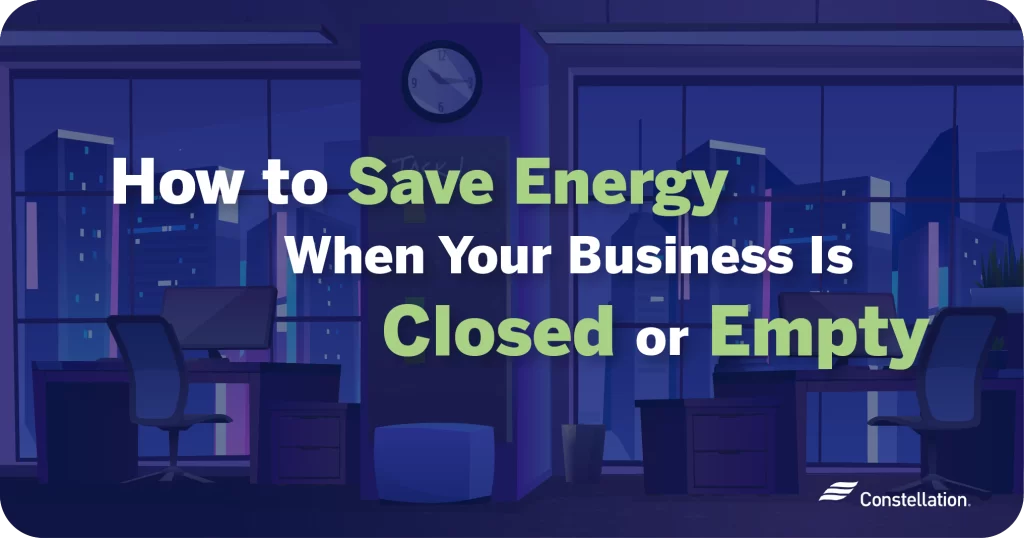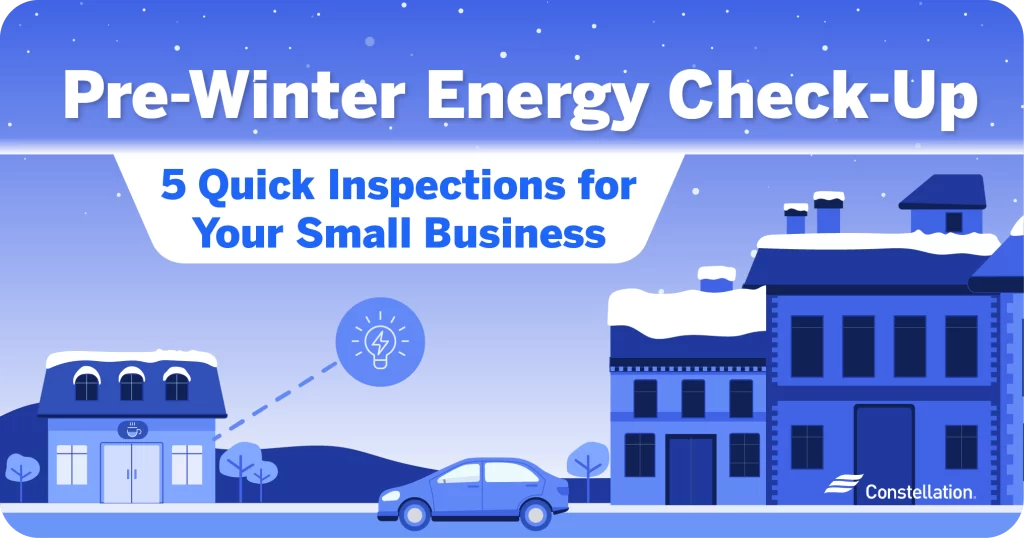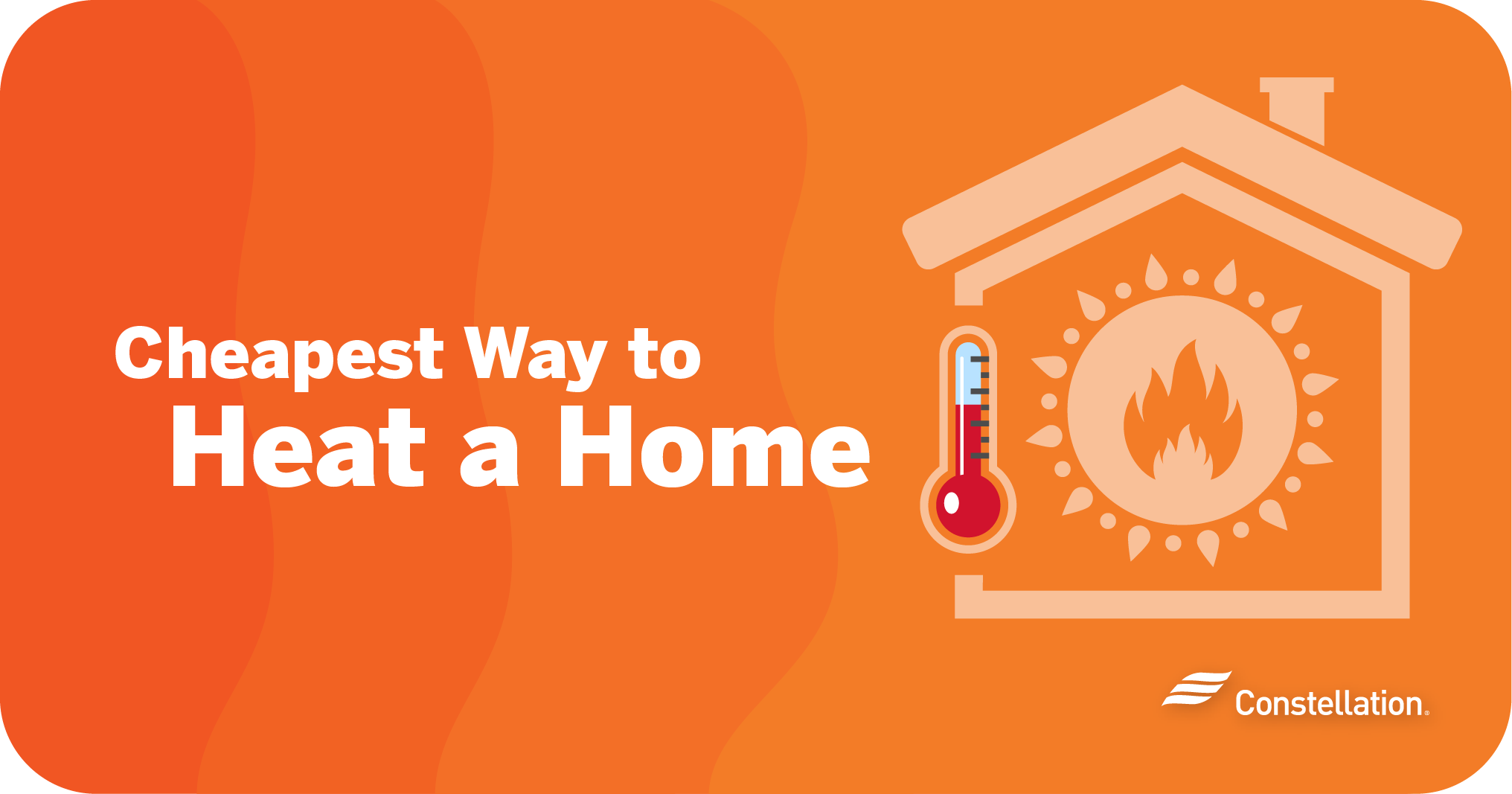
- Category:
Home Energy Savings -
Last updated:
September 8, 2023
Cheapest Way to Heat a Home
When managing your household budget, you might ask yourself: What is the cheapest way to heat a home? The question has several answers. You will want to have an efficient heat system and then you will want to establish energy-saving tips. Together, this approach could help you slash your power bill and your carbon footprint at the same time without sacrificing comfort.
Is Natural Gas or Electricity Cheaper for Heating?
Heating with natural gas is generally cheaper than heating with electricity. Pricing for gas and electricity do fluctuate, though, and the costs for each are not the same in every area.
In finding the most cost-effective way to heat a house, you can use this resource from Shrink that Footprint to assess your situation and identify the most cost-efficient ways to heat your home. It uses data from the U.S. Energy Information Administration to give you an up-to-date understanding of market rates. Depending on where you live, current market conditions, and how electricity is produced in your area, however, you may find that electricity is cheaper for heating in the long run.
Cheapest Ways to Heat Your Home with Different Energy Sources
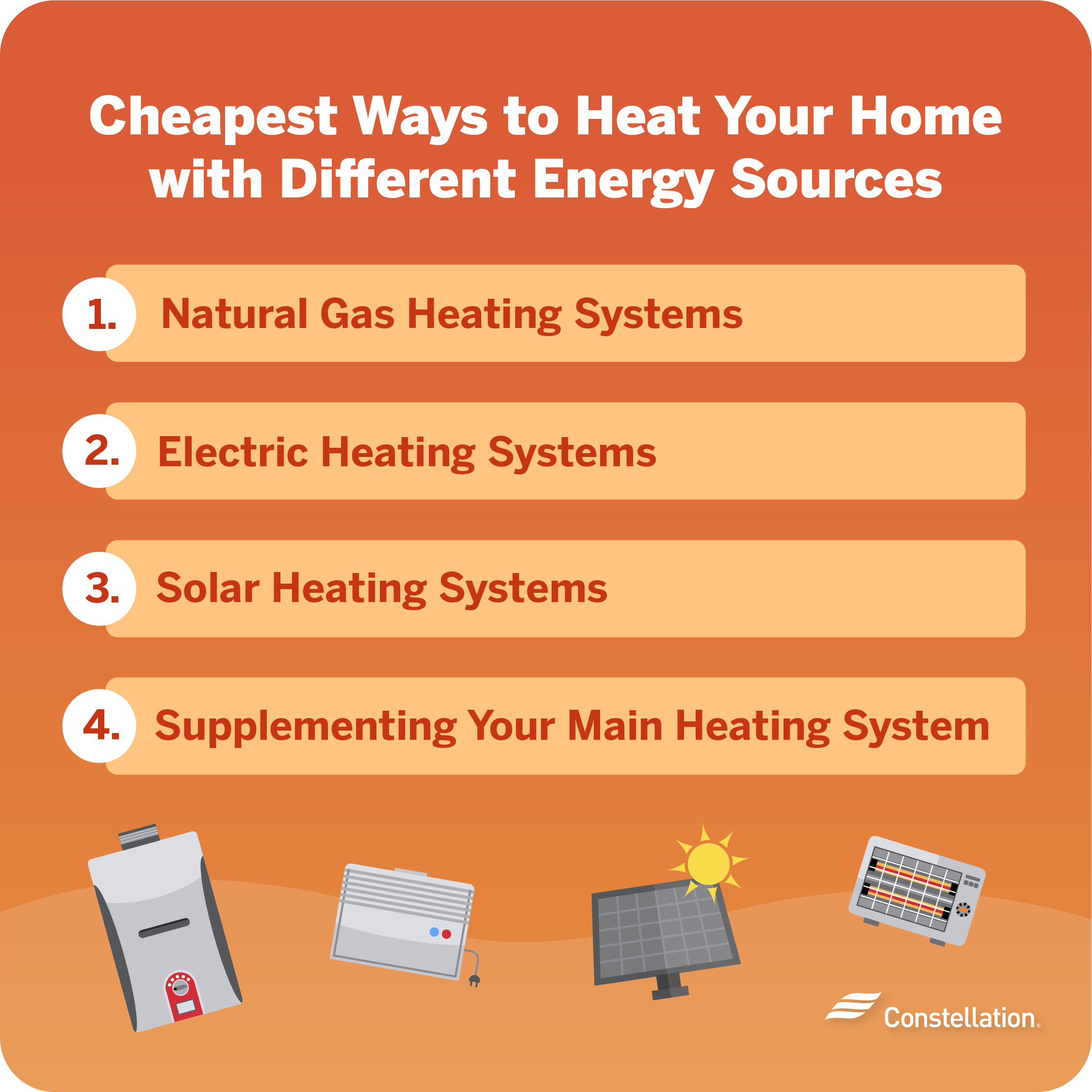
In looking for efficient ways to heat your home, consider these options. You probably have access to many different heat sources, so consider each and then decide what is the cheapest way to heat a home in your situation.
Natural Gas Heating Systems
The most cost-effective ways to heat a house with gas include forced air furnaces or boilers for hot water or steam in radiators. In each system, burning gas creates heat that is distributed via ducts or pipes. Since natural gas is plentiful in the U.S., it is usually a more affordable option for many people.
Electric Heating Systems
Electric systems include furnaces, boilers, heat pumps and radiant floor heat. Furnaces are often the least expensive to install. Heat pumps in certain environments can cost less to operate over the long haul. Radiant heat within floors or radiators is also highly cost-effective. Maintenance is typically lower with such systems as they have fewer moving parts.
Solar Heating Systems
In some places and with some kinds of houses, solar can be a cost-effective method for generating heat. You can install an active solar heating system that uses photovoltaic panels that transfer the sun’s energy to air or liquid that is then circulated in your home.
Considering the pros and cons of solar energy, including the size, construction, and how much sun your home gets will determine the design of the solar heating system that would work best for your house.
Supplementing Your Main Heating System
In some situations, a space heater can increase your comfort in a few trouble spots without the expense of installing a new system or running a more powerful system. You might have a cold in-home office or a bathroom that is chilly in the morning. Running a portable heater for a short time can be very cost-effective.
If you are running many space heaters for long periods, however, you will quickly find it is not the cheapest way to heat a house with electricity. You are better off looking at alternatives.
7 Tips to Lower Heating Costs and Improve Efficiency
You don’t have to shiver through the winter to help the environment and potentially save money on your heating bills. You’ll help to lower your heating costs, maintain a cozy home and cut carbon emissions by following these home heating efficiency tips.
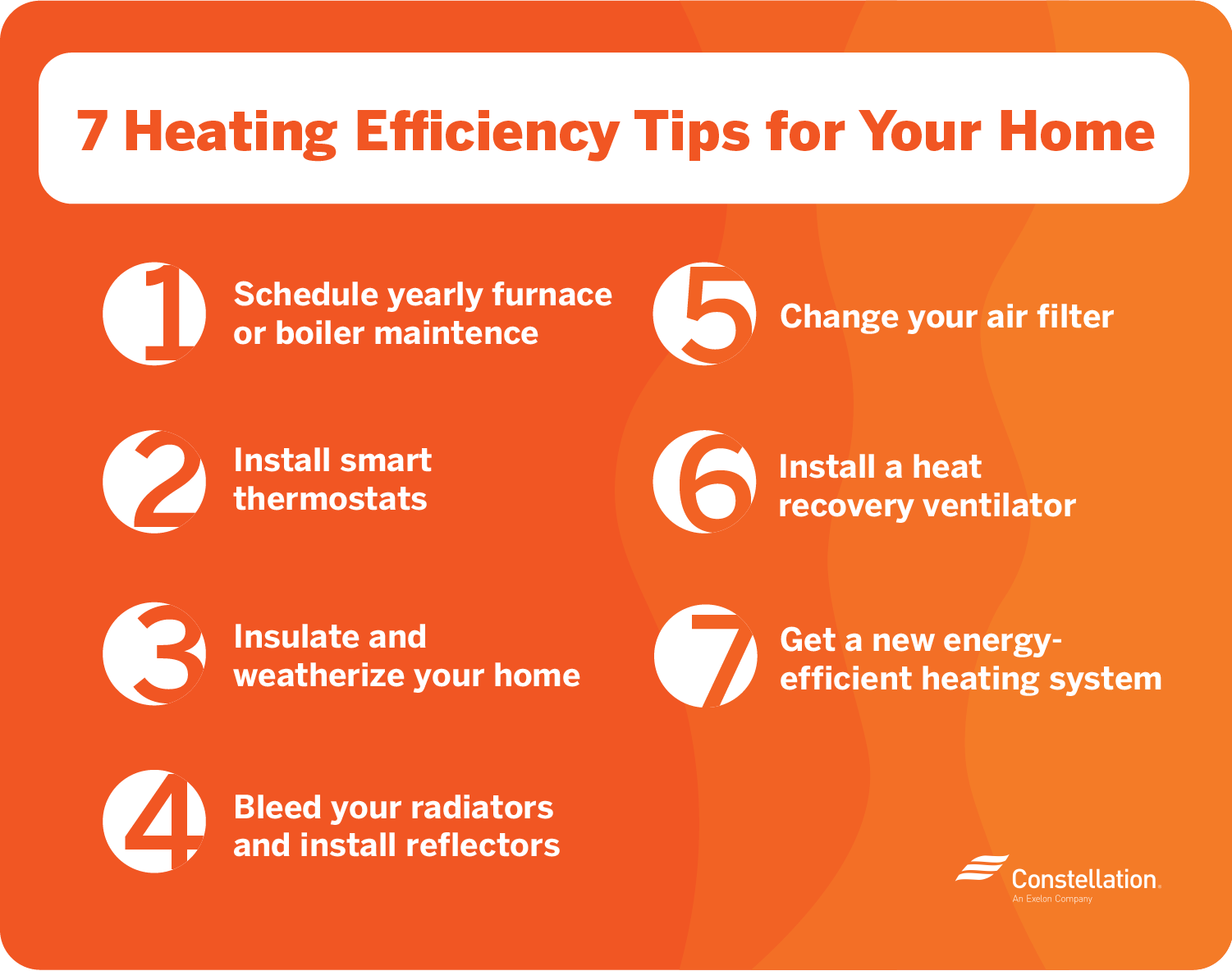
1. Schedule furnace/boiler maintenance once a year
A broken furnace or boiler can leave you in the cold. And worse, it can be dangerous, spewing microbes and allergens into your home. Carbon monoxide fumes are deadly, and a gas leak can cause an explosion.
Lastly, consider the costs. If your system isn’t running smoothly, you are wasting energy and driving up your heating bill. With preventive maintenance, your system runs economically. Yes, you’ll have to spend some money, but maintenance is cheaper than repair — and safer.
2. Install smart thermostats
Explore getting a smart thermostat to make home heating more efficient. You can program them according to your preferences and patterns. Many systems learn your home, optimizing how your heating system runs to take advantage of the heat of the sun, when you are sleeping and when you are out of the house. You won’t waste money blasting heat when you are at work or heating a room that is already warm from the sun.
3. Insulate and weatherize your home
Keeping warm air in your home can help improve heating efficiency as your furnace or boiler doesn’t have to work as hard. Here are several ways you can retain warmth:
- Add insulation to your attic.
- Use blown-in insulation to fill gaps between your interior walls and the outside surfaces. Insulating your home can make a huge difference.
- Install new multi-pane ENERGY STAR® windows, which can quickly pay for themselves in energy savings.
- Hunt for drafts around doors and windows and seal them up.
- Install plug protectors to prevent heat loss through unused electrical plugs.
- Close gaps and cracks around where utilities like cable and water come into your home.
4. Bleed your radiators and install reflectors
Prevent cold radiators on a frigid day. Bleed your radiators in advance of cold weather to ensure air doesn’t get trapped in them, blocking the flow of heat. Fortunately, bleeding your radiator to let out trapped air is an easy task:
- Turn off the heat before you do anything.
- On the side near the top of your radiator, you’ll find the bleed valve. Turn it with a radiator key (available at most hardware stores) or a pair of pliers.
- Turn counterclockwise about half a turn, going slowly and listening for a hissing sound. That’s the air escaping as hot water takes its place.
- When water starts to stream out instead of air, you’ve removed your air block. Close the bleed valve and wipe up any spilled water.
Beyond improving your home heating efficiency, bleeding your radiators lowers the cost of operating your forced-hot-water boiler. Installing reflectors, thin sheets or foil placed between the coils and the wall, will send more heat into your room. This practice is especially effective for radiators on outside facing walls and walls that are not well insulated.
5. Change your air filter
If you’re wondering how to heat your home efficiently, start with the air filter. Old and dirty air filters block the flow of air, which makes your forced-air furnace work harder. Fortunately, this kind of do-it-yourself HVAC maintenance is simple. To ensure that your furnace is heating your home efficiently, replace the air filter regularly.
Washable air filters reduce your ecological footprint and work well if you regularly clean it with a vacuum cleaner or give it a rinse under running water. To remove serious grime, diluted dish soap will remove oily buildup.
6. Install a heat recovery ventilator
One of the more innovative central heating efficiency tips is to invest in a heat recovery ventilator. These systems capture heat from exhaust air and mix it with fresh intake air. They also remove mold-causing moisture, along with many contaminants and odors, in the process.
Most homes exhaust some air through bathroom fans, kitchen oven hoods and appliances. Heat recovery ventilators capture up to 90% of the heat that would otherwise be lost to the outside.
7. Get a new energy-efficient heating system
Furnaces last, on average, up to 15 years. The life expectancy of your unit will vary, depending on the quality and regularity of your maintenance. If your furnace is getting near that 15-year mark, it may simply quit without warning. Start shopping before your furnace wears out so that you can make an informed decision without the pressure. With the right choice and an ENERGY STAR™ rating, you may find it quickly pays for itself in energy savings.
Newer units are also easier to maintain and may offer performance enhancements, like sound absorption and additional insulation. And some forced-air systems are fitted with advanced air filtration systems to help improve the quality of the air inside your home.
Learn More about the Most Efficient Home Heating Systems
When you choose the most efficient home heating system for your situation that turns out to be the cheapest way to heat a home, you can save energy and money without sacrificing comfort. A small effort really pays off in energy savings and a lower carbon footprint.
When it comes to finding efficient ways to heat your home, consider all the factors, including energy prices and climate trends in your state. Constellation’s guide, What’s the Most Efficient Home Heating System?, will help you consider all the details and make an informed choice.

